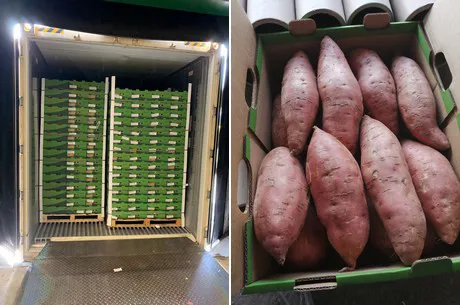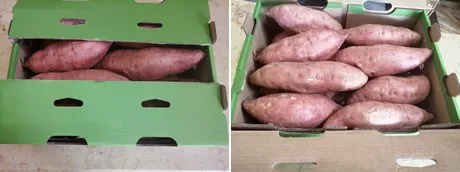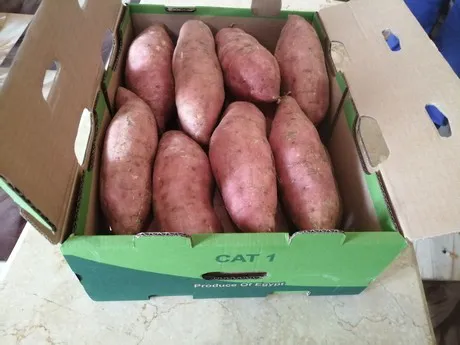The sweet potato season in Egypt came with quite some ups and downs. Early in the season Europe was dealing with shortages, creating a sudden spike in demand and prices. However, due to the growing popularity of the sweet potato, more crops are being planted as well. This could lead to an oversupply in the future.
The start of the sweet potato season took an unexpected turn, according to NileTrade chairman Hussein El-Kelesh. “Just before the season started we received quite a few inquiries on the sweet potatoes, as they were dealing with shortages in Europe. This created a situation where prices for Egyptian sweet potatoes were unusually high. We had already set up programs with our clients in the Netherlands, where we mainly export to. After agreeing on a price of 5 euro per 6kg box, growers suddenly wanted a lot more for their produce as well. Meaning this deal with Holland wasn’t feasible anymore, as this was the exact price that growers wanted. After explaining the situation we agreed on deal of 7 euro per 6kg box of large size sweet potatoes.”

The company never expected the high prices would work, but both importers and consumers in Holland seemed to be okay with the prices, says El-Kelesh. “This was a workable situation, but about two weeks ago the season in Spain started. This caused demand to drop and as a result, the prices took a dive as well. They went from 10 euro per 6kg box to 6-7 euro per 6kg box. It has turned the season upside down, but luckily we’re still supplying Holland with the fixed price we agreed on. Overall it’s been a pretty good season for us.”

More and more growers decide to plant sweet potatoes, as they are growing in popularity. This could lead to problems, El-Kelesh explains. “We see more sweet potatoes being cultivated in Egypt, but also in other European countries. This effect is quite normal, you see it in other crops as well. When there is a very successful onion season, everyone will jump on the band wagon and crash the prices in later seasons. People will change crops again and the market will hopefully stabilize. One successful season never guarantees profits for the upcoming seasons, as you never know what will happen.”

Although Holland is the main export market for Al Nile Trade, the exporters are eyeballing the UK market as well. “England is a very strong market that we would be happy to supply. We’re unsure of what will happen with the Brexit-situation, but next year we will focus on the market more. We’re also looking to dip into the Asian, African and Dubai markets. The next big exhibition we’re hoping to attend is Fruit Logistica in Berlin. We’ve been going for many years and it’s always a great exhibition for us.” El-Kelesh concludes.
For more information:
Hussein El-Kelesh
Al Nile Trade
Tel: +20 1116 33 67 57
Email: alniletrade77@gmail.com
